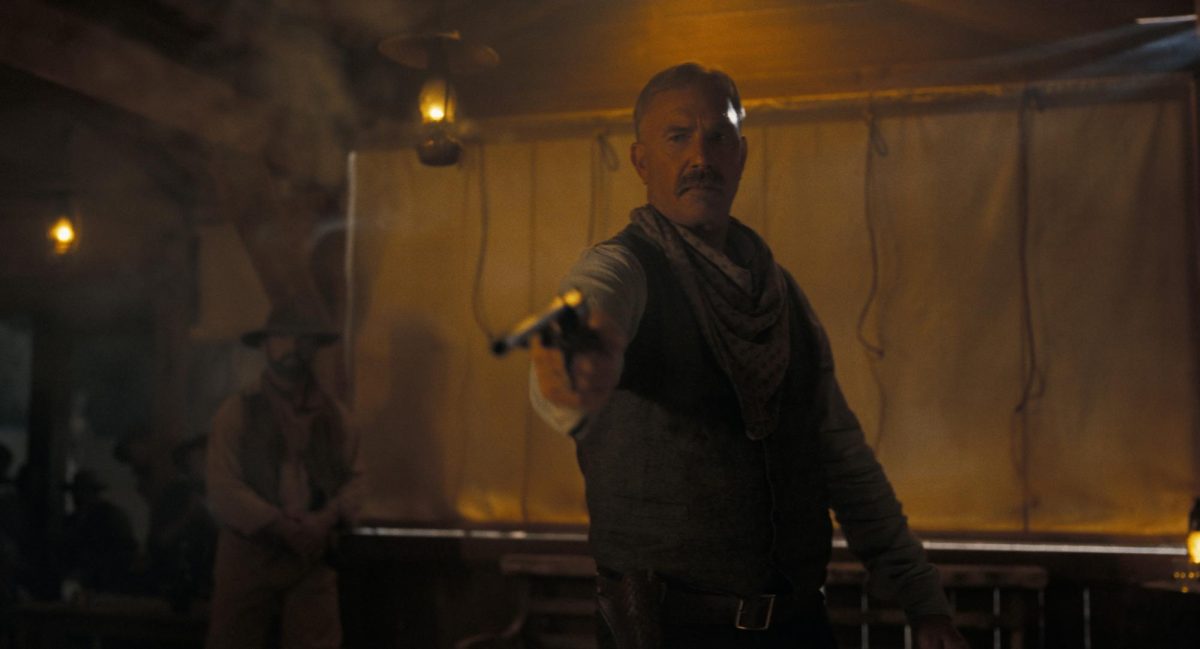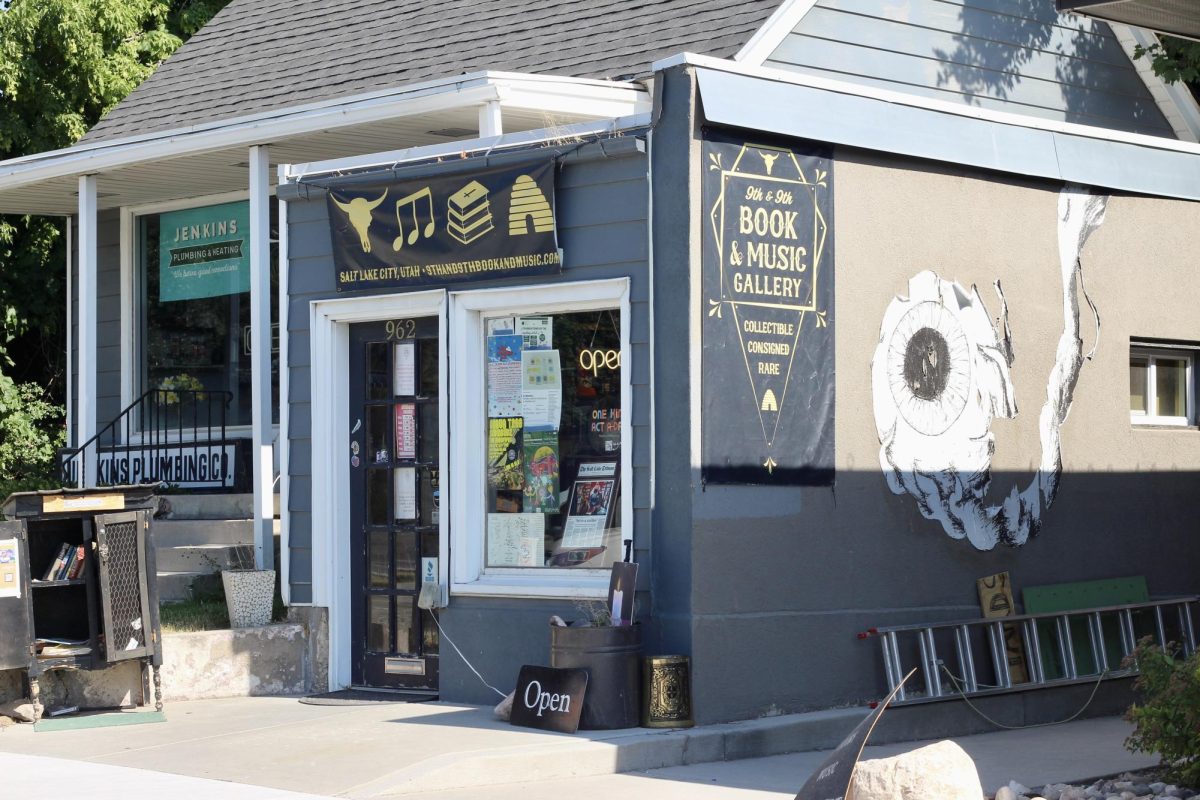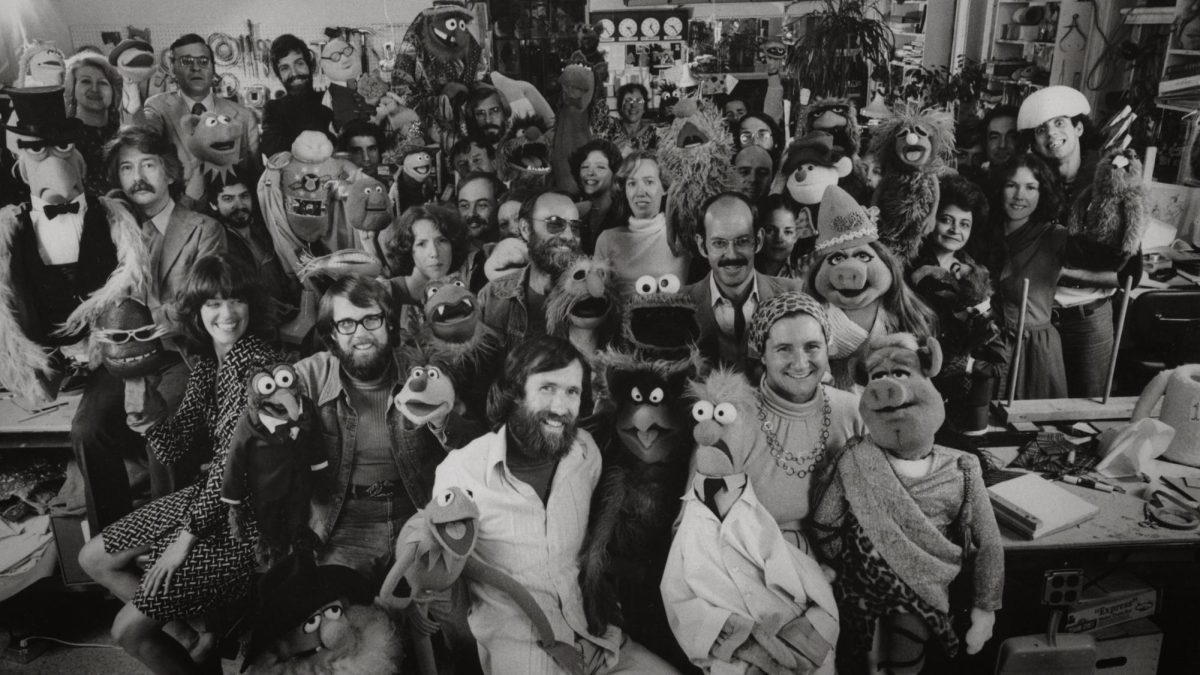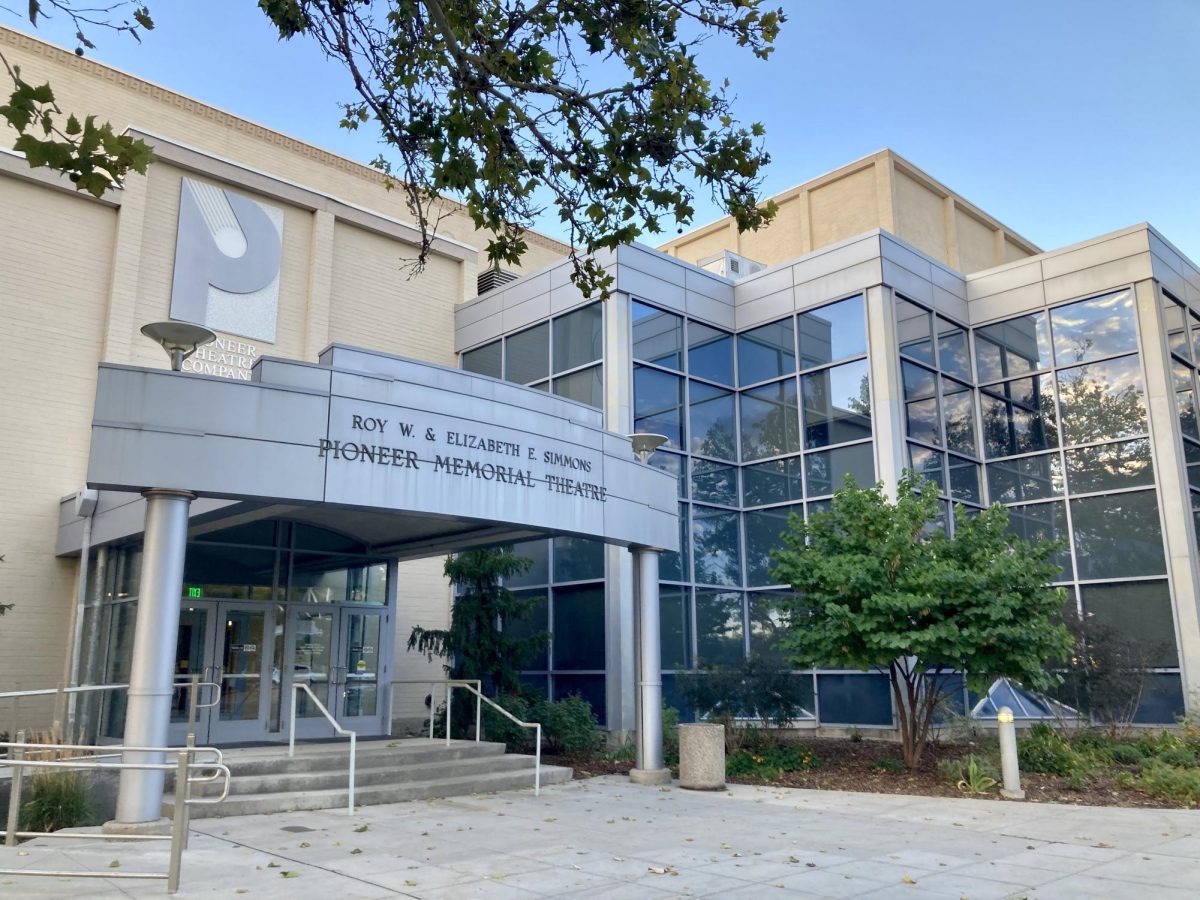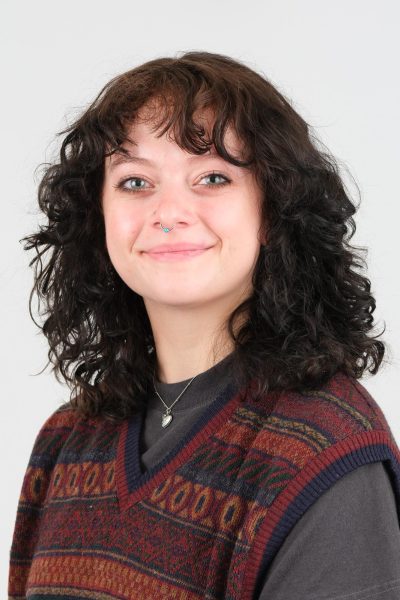“Dialect coaches give great interview[s],” author David Finkle wrote in a 2019 column for Backstage. “And all the while they’re gabbing, they’ll slip into accents from more countries and counties than you can count.”
Sarah Shippobotham, University of Utah Theatre Department professor and dialect coach for the Pioneer Theatre Company, is no different.
Shippobotham travels from the United Kingdom to the American South with just her voice. She explained the differences in “o” sounds from one accent to the other as she travels, how the rhythm of a sentence might change from one dialect to the next.
Shippobotham’s work as a dialect coach has spanned a number of years. She’s spent 12 seasons as a dialect coach with the Shaw Festival in Ontario, Canada, and worked as an additional dialect coach on Peter Jackson’s “The Hobbit.” Now, she’s been a dialect coach for the Pioneer Theatre Company since 2009.
Developing Accents
“Everything I do in this work is based on helping the actor to sound as if when [they] hit the stage or set that they were already talking like that,” said Shippobotham in a statement on her dialect coaching.
This involves looking at two different parts of accent acquisition. The first, often referred to as the “mathematical” part, is the direct sound substitutions needed to accurately voice an accent. Shippobotham used the sound of an “o” in an American accent versus a Scottish accent to explain what these kinds of sound substitutions look like.
“The ‘o’ sound is a sort of two sounds put together in American,” Shippobotham described. Meanwhile, a Scottish “o” will sound more like “oo.” After understanding the “mathematical” differences in certain sounds between accents, actors can then go to their script and annotate certain words with their new pronunciations.
Teaching Accents
The second part of teaching an accent is “a more intangible, artistic side.” This involves pitch, rhythm, tune and stress patterns.
“If the tune and the rhythm don’t feel right, then it doesn’t matter how good the math is. We as the audience potentially don’t believe them,” Shippobotham said.
Shippobotham applies a variety of techniques to develop believability. She’ll meet the students where they are and figure out their learning styles. Then, she’ll supply actors with videos, converse with them in an accent and give notes after rehearsals.
“I’m very keen on being a positive force for them,” Shippobotham said. “Trying to make it work for them to knowing when to step back.” At some point, Shippobotham said, actors need to focus on the acting.
“That’s the thing that some people fall into,” said actor Abdullah Khalil. Khalil worked with Shippobotham while he acted with the Pioneer Theatre Company in a production of “A Distinct Society.”
“They play a dialect and the whole thing is about the dialect,” Khalil described. “But what about the human? The human aspect?”
For Khalil, learning a character’s accent starts at the very beginning. He emphasizes how actors need to read scripts in accents as soon as they get it.
Accents and Identity
Khalil even spoke in a Persian accent to strangers as practice, just as his character in “A Distinct Society” does.
“It’s interesting because you get treated differently, that’s what I found,” Khalil recalled.
“A Distinct Society,” to a certain extent, examines this very phenomenon.
“So much of [the play] is sort of about how we perceive people based on how they talk,” said “A Distinct Society” playwright Kareem Fahmy.
He pointed to a scene where an American Customs and Border Protection Officer encounters Khalil’s character. The character is Iranian with a thick Persian accent and is asked for his passport.
“When this American customs officer asks a man with an accent for his passport, he’s making, potentially, some sort of assumption there, right?” Fahmy said.
Several of Fahmy’s other plays include characters with accents, although the relationship between accent and identity in every character isn’t always the same.
“It depends on the character, some of those specific examples that I just used, I think it’s deeply intertwined,” Fahmy says. “Other times, I don’t think it’s super relevant to the character. It all depends on the intention of the play, the intention of the character.”
For Shippobotham, a recognition of the culture and the people of a region that an accent comes from is part of her approach to accent work.
“There’s a whole culture that’s behind [accents], or a whole way of being that’s behind it, that actually asks actors to do different things,” Shippobotham said. “If we make everything the same, then we don’t maybe get to experience the difference in being or culture in such an interesting way.”








